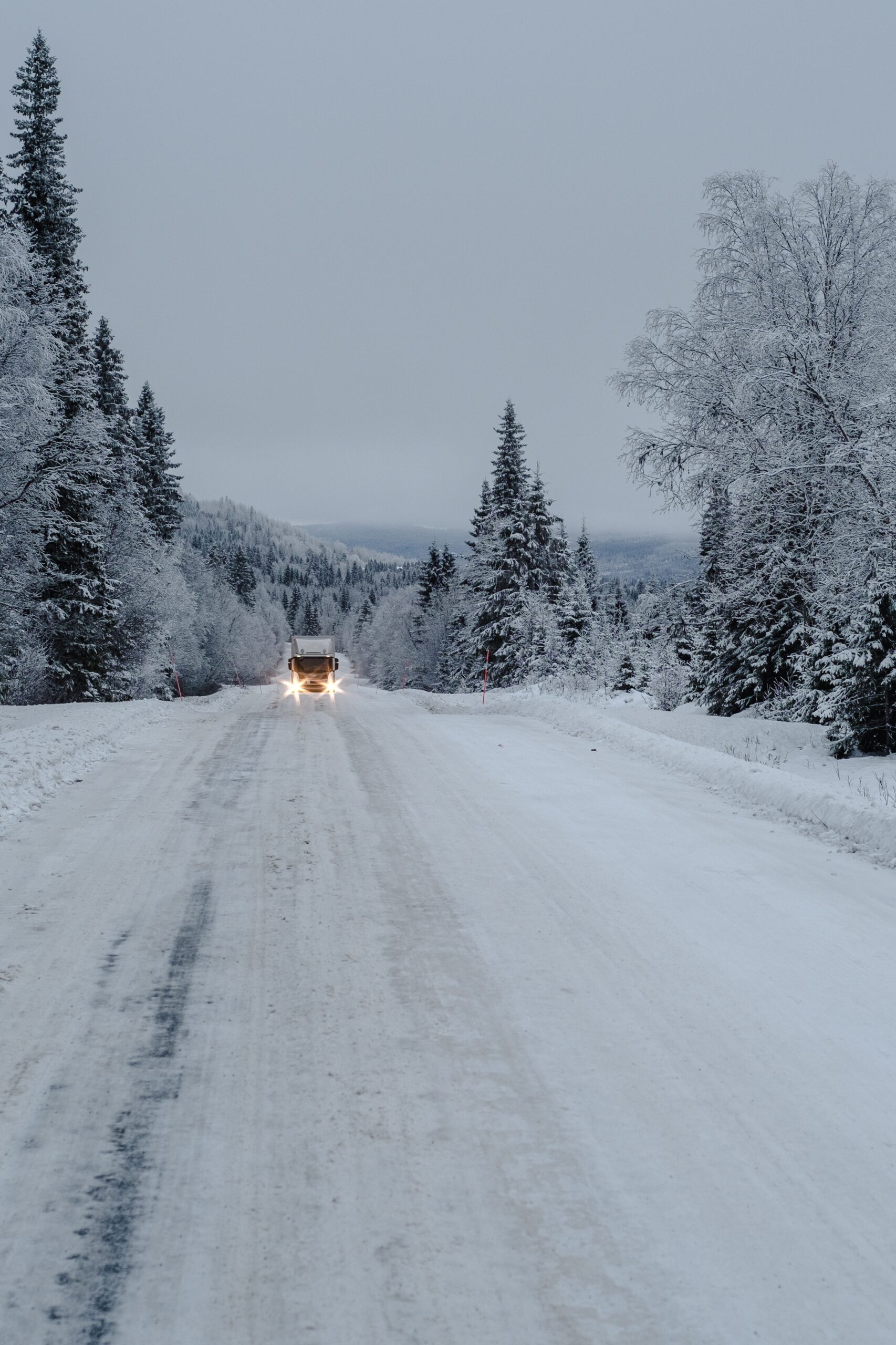Introduction
Refrigerated hauling is vital for transporting perishable goods such as fresh produce, pharmaceuticals, and frozen foods. However, the winter months bring unique challenges that can complicate the process. Extreme cold, hazardous road conditions, and increased strain on equipment all demand extra precautions to ensure shipments arrive safely and on time. This blog explores the key challenges and provides actionable solutions for overcoming them.
1. Challenges in Refrigerated Hauling During Winter
a. Temperature Control Issues
One of the primary challenges during winter is maintaining the right temperature inside the refrigerated trailer. While the cold weather might seem advantageous for keeping goods frozen, it can actually cause over-freezing, damaging products that require specific temperature ranges. Balancing internal trailer temperatures with external weather conditions becomes more difficult in sub-zero climates.
b. Equipment Malfunctions
Winter weather puts extra strain on refrigeration units and truck equipment. Frozen fuel lines, battery failures, and malfunctioning defrost systems can all lead to breakdowns. Prolonged exposure to extreme cold can also wear down seals and cause leaks, compromising the insulation of the trailer.
c. Road and Weather Conditions
Icy roads, heavy snowfall, and poor visibility make winter driving especially hazardous. These conditions increase the likelihood of accidents and delivery delays. Navigating mountain passes or remote areas can be particularly risky during snowstorms.
d. Regulatory Compliance
Transporting temperature-sensitive goods requires strict adherence to cold-chain standards, including temperature logs and inspections. Winter weather complicates compliance efforts, as delays and equipment issues can make it harder to maintain consistent temperature records and meet delivery deadlines.
2. Solutions for Managing Temperature Control
-
Calibrate Refrigeration Units: Regularly inspect and calibrate refrigeration units to ensure they maintain the required temperature range.
-
Real-Time Monitoring: Use data loggers or IoT-enabled devices to monitor trailer temperatures in real-time. These tools can alert drivers to temperature fluctuations before they become a problem.
-
Defrost Cycles: Set appropriate defrost cycles to prevent ice buildup, which can impede airflow and reduce cooling efficiency.
-
Insulated Blankets: For extremely cold conditions, consider using insulated blankets or thermal barriers to help regulate the trailer’s internal temperature.
3. Preparing Equipment for Winter Conditions
-
Winter Maintenance Checks: Perform thorough inspections of trucks and trailers before the winter season. Check the refrigeration unit, tires, brakes, and seals for wear and tear.
-
Winter-Grade Fuel and Antifreeze: Use additives to prevent fuel from freezing and ensure all fluids are rated for low temperatures.
-
Emergency Repair Kits: Equip trucks with spare parts, such as belts, hoses, and fuses, as well as tools for quick repairs on the road.
-
Battery Health: Test and replace weak batteries to prevent breakdowns in extreme cold.
4. Safe Driving Practices in Winter Weather
-
Driver Training: Train drivers to navigate icy roads, handle skids, and maintain safe following distances. Emphasize defensive driving techniques for winter conditions.
-
Proper Equipment: Ensure trucks are fitted with winter tires and carry chains for added traction in snowy or icy conditions.
-
Route Planning: Plan routes to avoid areas with severe weather forecasts or difficult terrain. Monitor weather updates regularly and have alternative routes ready.
-
Adjust Schedules: Build extra time into delivery schedules to accommodate potential delays caused by weather.
5. Ensuring Regulatory Compliance
-
Accurate Temperature Records: Use automated systems to log temperature readings throughout the journey. This ensures compliance with cold-chain standards and provides evidence during inspections.
-
Pre-Trip Inspections: Conduct pre-trip inspections to verify that trailers meet regulatory requirements for insulation and refrigeration.
-
Compliance Expertise: Work with compliance specialists or use software solutions to stay on top of cold-chain documentation and requirements.
6. Building a Winter Contingency Plan
-
Emergency Protocols: Develop a comprehensive contingency plan for weather-related delays or breakdowns. Include steps for rerouting, contacting repair services, and notifying customers.
-
Safe Stops: Identify safe rest stops and repair facilities along regular routes where drivers can wait out storms or get assistance if needed.
-
Emergency Supplies: Stock trucks with essential supplies, such as blankets, non-perishable food, water, flashlights, and first aid kits, to keep drivers safe during unexpected delays.
-
Communication Channels: Establish clear lines of communication between drivers, dispatchers, and customers to provide real-time updates and manage expectations during disruptions.
7. Partnering with Experts in Refrigerated Hauling
-
Experienced Carriers: Partner with carriers that have a proven track record in refrigerated hauling during winter months. Their expertise can help mitigate risks and ensure smooth operations.
-
Reliable Repair Networks: Build relationships with repair shops along your routes to reduce downtime in case of breakdowns.
-
Industry Guidance: Seek advice from industry experts and associations for the latest best practices in winter hauling.
Conclusion
Refrigerated hauling during winter months presents unique challenges, from temperature control issues to hazardous road conditions. By preparing equipment, training drivers, maintaining regulatory compliance, and building a contingency plan, trucking carriers can overcome these obstacles and ensure successful deliveries. Partnering with experienced professionals and adopting proactive strategies will help safeguard your cargo and maintain customer trust, even in the harshest winter conditions.
Looking for more guidance or support with refrigerated hauling? We provide North America with specialized reefer trucking across the continent. View our services here.

